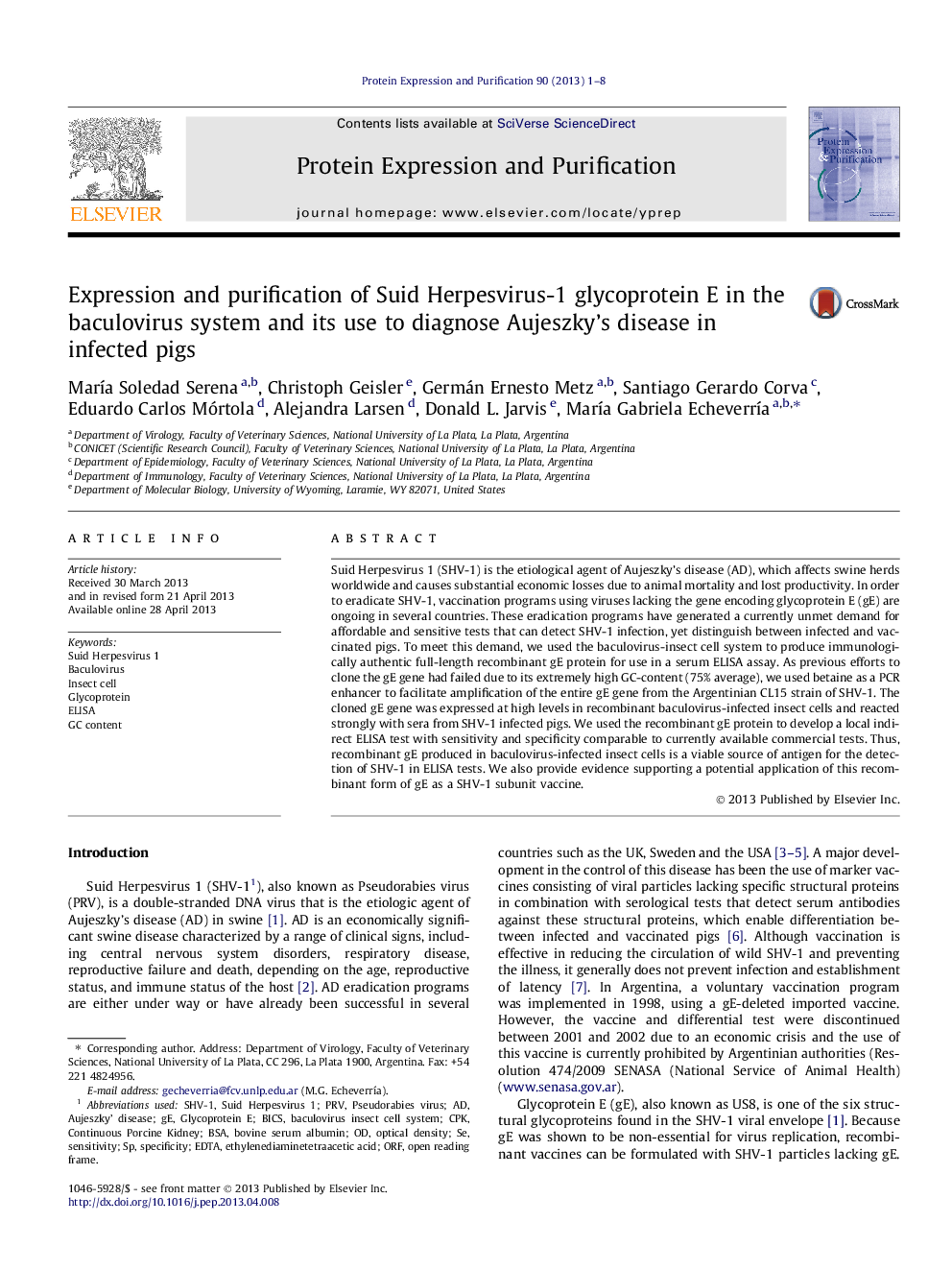| Article ID | Journal | Published Year | Pages | File Type |
|---|---|---|---|---|
| 10843168 | Protein Expression and Purification | 2013 | 8 Pages |
Abstract
Suid Herpesvirus 1 (SHV-1) is the etiological agent of Aujeszky's disease (AD), which affects swine herds worldwide and causes substantial economic losses due to animal mortality and lost productivity. In order to eradicate SHV-1, vaccination programs using viruses lacking the gene encoding glycoprotein E (gE) are ongoing in several countries. These eradication programs have generated a currently unmet demand for affordable and sensitive tests that can detect SHV-1 infection, yet distinguish between infected and vaccinated pigs. To meet this demand, we used the baculovirus-insect cell system to produce immunologically authentic full-length recombinant gE protein for use in a serum ELISA assay. As previous efforts to clone the gE gene had failed due to its extremely high GC-content (75% average), we used betaine as a PCR enhancer to facilitate amplification of the entire gE gene from the Argentinian CL15 strain of SHV-1. The cloned gE gene was expressed at high levels in recombinant baculovirus-infected insect cells and reacted strongly with sera from SHV-1 infected pigs. We used the recombinant gE protein to develop a local indirect ELISA test with sensitivity and specificity comparable to currently available commercial tests. Thus, recombinant gE produced in baculovirus-infected insect cells is a viable source of antigen for the detection of SHV-1 in ELISA tests. We also provide evidence supporting a potential application of this recombinant form of gE as a SHV-1 subunit vaccine.
Related Topics
Life Sciences
Biochemistry, Genetics and Molecular Biology
Biochemistry
Authors
MarÃa Soledad Serena, Christoph Geisler, Germán Ernesto Metz, Santiago Gerardo Corva, Eduardo Carlos Mórtola, Alejandra Larsen, Donald L. Jarvis, MarÃa Gabriela EcheverrÃa,
